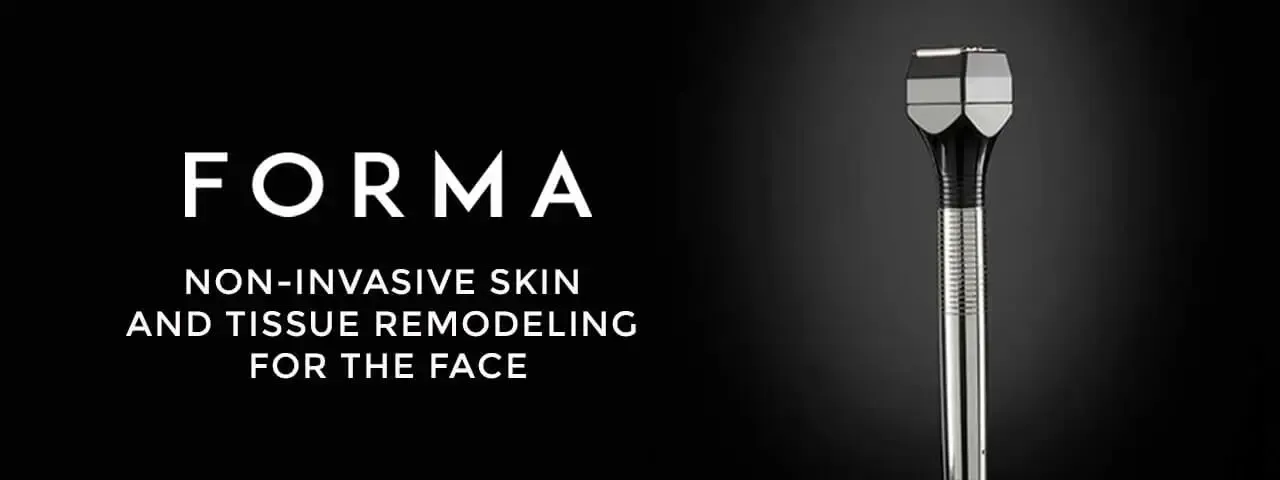Understanding Pigmentation: What It Is and How To Manage It
Amber • April 25, 2025
Pigmentation refers to the colouring of your skin, which is determined by a pigment called melanin. Produced by cells called melanocytes, melanin protects your skin from UV damage and gives your skin, eyes, and hair their colour. But when melanin production becomes uneven, it can lead to pigmentation disorders.
Common pigmentation issues include:
- Hyperpigmentation: Dark patches caused by excess melanin, often due to sun exposure, acne scars, or hormonal changes.
- Hypopigmentation: Light patches due to reduced melanin, which can result from skin damage or conditions like vitiligo.
- Melasma: Often triggered by hormones, melasma appears as brown or grey-brown patches, especially on the face.
- Sunspots: Also called age spots or liver spots, these flat, dark areas are caused by prolonged sun exposure.
Managing Pigmentation
While pigmentation isn’t usually harmful, it can be a cosmetic concern. Here are some ways to manage it:
- Sun protection: Always wear sunscreen with at least SPF 30, all year round.
- Topical treatments: Ingredients like vitamin C, retinoids, niacinamide, and hydroquinone (prescription) can help lighten dark spots.
- Professional treatments: Chemical peels, cryotherapy, laser therapy, and skin needling are popular options for more stubborn pigmentation.
Products to use at home
- PCA Pigment Bar
- PCA Rebalance Moisturiser
- PCA Weightless Protection SPF 45
- PCA Retinol Brightening Treatment
- PCA Hyaluronic Acid Boosting Serum
If pigmentation changes suddenly or spreads rapidly, it’s always a good idea to consult a dermatologist to rule out any underlying issues.
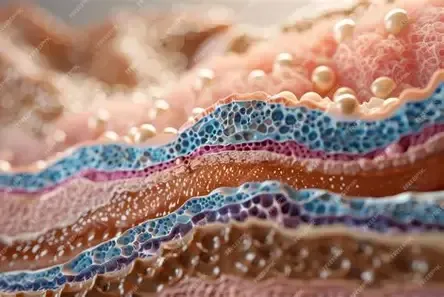
At Be You Medical group , we believe beauty starts from within — and regenerative medicine is one of the most powerful ways to support your skin’s natural ability to restore and renew itself. You’ve probably heard the term “regenerative medicine” used more often lately, but what does it really mean, and how can it transform your skin? Let’s break it down. What Is Regenerative Medicine? Regenerative medicine is a ground-breaking field of science that focuses on repairing and restoring damaged tissues by harnessing the body’s own natural healing abilities. Rather than masking issues or simply treating surface symptoms, regenerative treatments stimulate your body to heal itself — helping you achieve healthier, more youthful skin from the inside out. When applied to skincare and aesthetics, regenerative medicine helps: Boost collagen and elastin production Repair damaged skin cells Improve circulation and hydration Restore smoothness, tone, and texture How It Works Regenerative therapies often use biologically active components already found in your body — like platelet-rich plasma (PRP) , growth factors , or exosomes . These substances contain powerful healing signals that tell your skin to produce new cells and rebuild collagen. For example: PRP Facials (also known as the “Vampire Facial”) use your own platelets to trigger deep healing and rejuvenation. Microneedling with Growth Factors or Exosomes enhances collagen production, reducing fine lines and improving skin texture. Polynucleotide-based treatments work by stimulating deep skin regeneration and repair at a cellular level. These naturally occurring molecules help improve elasticity, boost hydration, and promote collagen production The Benefits of Regenerative Skin Treatments Regenerative medicine doesn’t just make your skin look better — it helps your skin become healthier over time. Here are some of the most common benefits: Reduced fine lines and wrinkles Smoother, firmer skin Improved tone and radiance Faded acne scars and pigmentation Enhanced elasticity and hydration Natural, long-lasting results — without that “overdone” look Unlike more invasive procedures, these treatments rely on your body’s biology to do the work, making them gentle, safe, and effective for most skin types. Why Choose Be You Medical Group for Regenerative Skin Care? At Be You Medical Group , our philosophy is simple: enhance, don’t alter. We specialize in treatments that support your body’s natural healing process to bring out your healthiest, most radiant skin. Our team combines advanced regenerative techniques with a holistic understanding of beauty and wellness — so your results look natural, balanced, and uniquely you. Ready to Experience the Future of Skin Health? If you’re ready to rejuvenate your skin from the inside out, regenerative medicine could be the perfect next step.
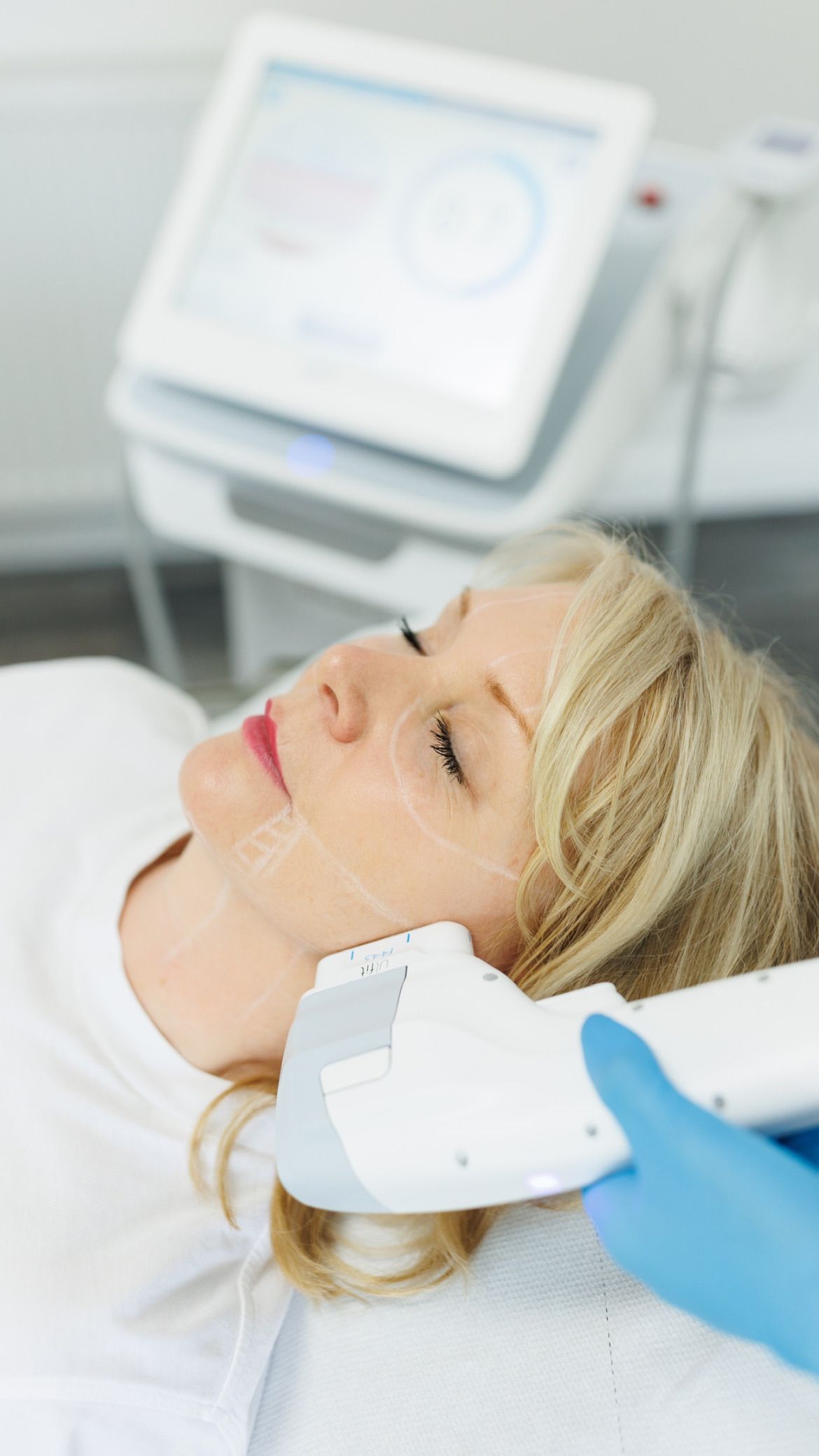
HIFU Treatment: The Non-Surgical Facelift Revolution In today’s world of advanced skincare and anti-aging technology, more people are looking for effective ways to lift, tighten, and rejuvenate their skin—without going under the knife. One of the most promising innovations leading this trend is HIFU , or High-Intensity Focused Ultrasound . This cutting-edge, non-invasive procedure has taken the beauty industry by storm, offering visible results without downtime or surgery. But what exactly is HIFU, and how does it work? Let’s dive in. What Is HIFU? HIFU stands for High-Intensity Focused Ultrasound . It’s a non-surgical facial treatment that uses focused ultrasound energy to stimulate collagen production deep within the skin layers. Unlike traditional facelifts, which require incisions, HIFU delivers precise ultrasound waves into targeted areas of the face or body. These waves heat the tissue below the surface, causing controlled micro-damage that triggers the body’s natural healing response - resulting in firmer, tighter, and lifted skin over time. How Does HIFU Work? The secret behind HIFU lies in collagen stimulation . As we age, our skin naturally loses collagen and elasticity, leading to sagging, wrinkles, and fine lines. HIFU addresses this by focusing ultrasound energy at specific depths: 1.5mm: Targets the superficial dermis to smooth fine lines. 3.0mm: Stimulates the deeper dermis to improve firmness and elasticity. 4.5mm: Reaches the SMAS (Superficial Musculoaponeurotic System)—the same layer tightened during a surgical facelift. The energy heats the tissue to around 60–70°C , triggering collagen regeneration and tightening effects that gradually improve over the following 8–12 weeks . Benefits of HIFU HIFU offers a wide range of cosmetic benefits, making it a popular alternative to more invasive procedures: ✨ Non-surgical & Non-invasive – No cuts, no needles, no scars. ⌛ Minimal Downtime – You can return to normal activities immediately. 💎 Natural-looking Results – Collagen builds gradually, so results appear subtle and natural. 🧴 Long-lasting Effects – Results can last up to 18 months , depending on your skin and lifestyle. 💰 Cost-effective Alternative – Less expensive than surgical facelifts, with fewer risks. Common Treatment Areas HIFU can be used to treat multiple areas of the face and body, including: Forehead and brow area (to lift droopy eyelids) Cheeks and jawline (to contour and define) Neck and décolletage (to reduce sagging skin) Around the eyes and mouth (to smooth fine lines) Stomach, arms, or thighs (for body tightening) What to Expect During a HIFU Session A typical HIFU treatment lasts 45–60 minutes , depending on the area being treated. Here’s what happens: Consultation: Your practitioner assesses your skin and discusses your goals. Cleansing: The skin is cleansed and ultrasound gel is applied. Treatment: The HIFU device is placed on the skin, delivering focused energy pulses. Post-care: There may be mild redness or tenderness, but this usually subsides within hours. Most clients see an immediate tightening effect , with optimal results appearing after 2–3 months as collagen production continues. Is HIFU Safe? Yes - HIFU is clinically proven to be safe when performed by trained professionals. It’s been approved by regulatory authorities like the FDA for facial lifting and wrinkle reduction. Mild side effects such as temporary redness, swelling, or tingling may occur but typically resolve quickly. Who Is a Good Candidate for HIFU? HIFU is best suited for individuals who: Have mild to moderate skin laxity Want to prevent early signs of aging Prefer non-invasive treatments over surgery Are looking for gradual, natural improvements Final Thoughts HIFU is transforming the way we approach skin tightening and anti-aging. It bridges the gap between skincare and cosmetic surgery, offering real results without risks or recovery time . Whether you’re in your 30s and starting preventive treatments or in your 50s looking to restore firmness, HIFU can be an effective part of your beauty journey. Always ensure your HIFU treatment is performed by a qualified practitioner using certified equipment for the safest, most effective outcomes.
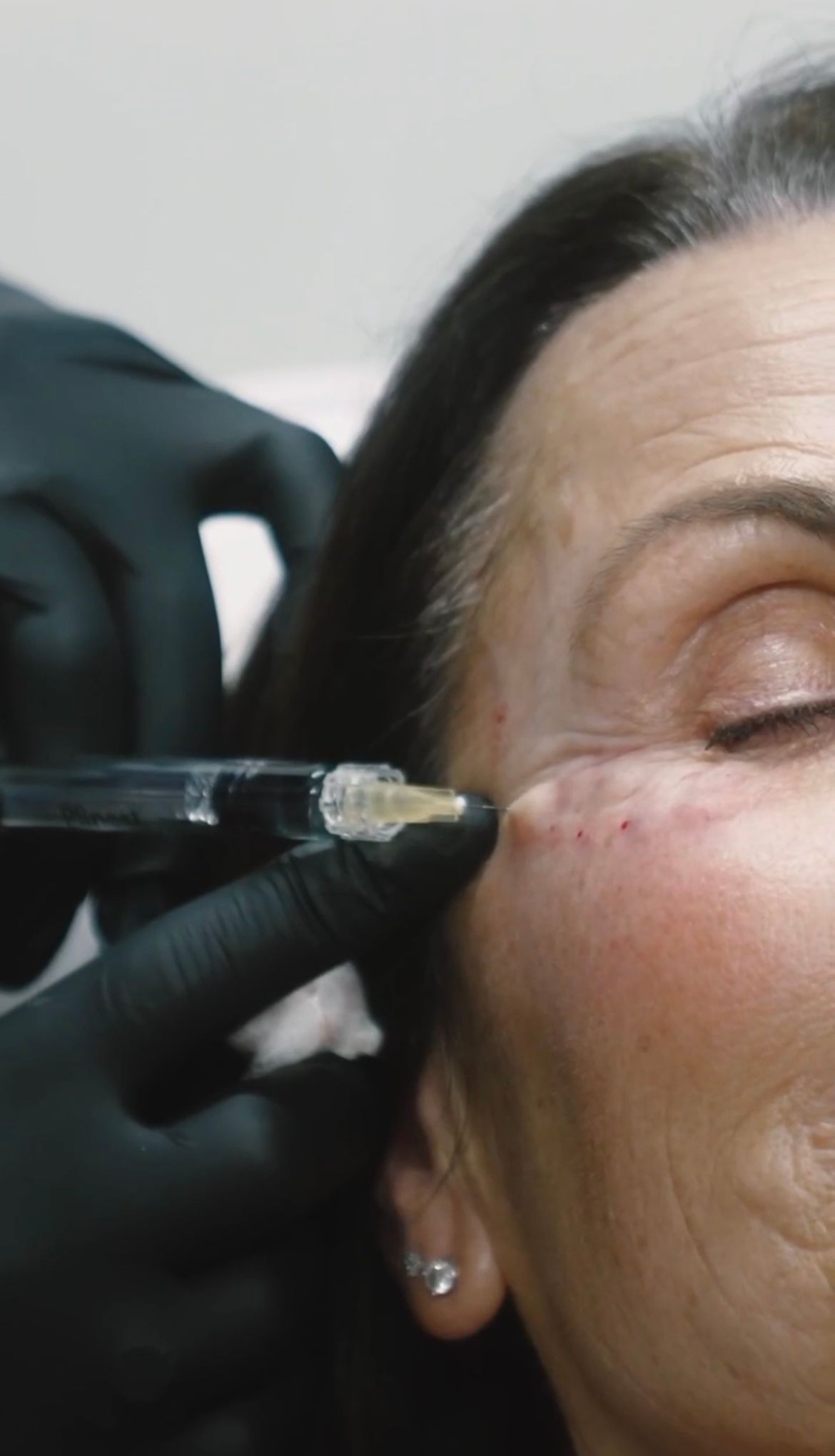
Dr Becky explains how both natural ageing and environmental factors affect your skin, and how injectables combined with targeted skincare can visibly reduce key signs of ageing: As a doctor and community dermatologist, one of the most common questions I hear is: “Why is my skin changing, and what can I do about it?” Ageing is a natural process, but understanding what happens beneath the surface can help us make informed choices about prevention and treatment. Why Skin Ages Our skin is made up of three main layers: the epidermis (surface layer), the dermis (where collagen and elastin live), and the deeper subcutaneous fat. As time passes, changes occur in each: Collagen and Elastin Breakdown – Starting in our mid-20s, collagen production slows, and elastin (the protein that gives skin its bounce) degrades. This leads to fine lines, wrinkles, and sagging. Volume Loss – Fat pads beneath the skin shift and shrink, causing hollowing around the eyes, flattening of the cheeks, and jowls along the jawline. Bone Remodelling – Even our facial bones resorb with age, subtly altering structure and support. Surface Changes – Years of sun exposure contribute to pigmentation, uneven tone, and rough texture. The result is what we recognize as “skin aging”: wrinkles, loss of definition, and changes in skin quality. Prevention: Skincare First While we can’t stop time, we can slow the aging process with consistent skin care: Sun Protection – Daily SPF is non-negotiable. UV exposure is the single biggest cause of premature aging. Topical Retinoids – These vitamin A derivatives stimulate collagen production and speed cell turnover. Antioxidants (like Vitamin C) – Help neutralize free radicals from sun and pollution, reducing damage. Moisturisers & Barrier Support – Hydrated skin looks plumper and healthier, and a strong barrier protects against irritation. Think of skincare as your “daily maintenance”—it sets the foundation for any further treatment. Correcting Changes: The Role of Injectables When skincare alone isn’t enough, injectables can restore youthful balance. Used strategically, they enhance natural beauty without making you look “overdone.” Anti-aging Treatments (e.g., Botox®) These relax the muscles that cause dynamic wrinkles (like frown lines or crow’s feet). They also help prevent deeper lines from forming over time. Dermal Fillers Fillers are made up of hyaluronic acid and replace lost volume, contour the face, and soften folds. Midface, nasolabial fold and marionette fillers can subtly lift the face, while lip or chin fillers can restore proportion. Skin Boosters Containing hyaluronic acid these work to boost moisture in the upper layers of the skin to help hydrate, plump and brighten skin Polynucleotides These treatments stimulate your body to make new collagen, elastin and fibrin, restoring and regenerating the skin to improving firmness and thickness gradually. They can be used around the eyes and lower face. When combined with good skincare, injectables allow us to both treat existing changes and slow further aging. The Art of Subtlety and Restorative Aesthetics The best results don’t erase character - they refresh. At Be You our approach is always conservative and tailored: enhancing natural features, maintaining balance, and helping you feel like your best self. Final Thoughts Skin ageing is a mix of genetics, lifestyle, and time. While we can’t control everything, we can protect, support, and restore with the right combination of science-based skincare and injectable treatments. If you’re curious about where to start, a consultation with a member of our team can help you create a plan that fits your needs, whether you’re focused on prevention in your 20s or rejuvenation in your 50s, 60s and beyond.
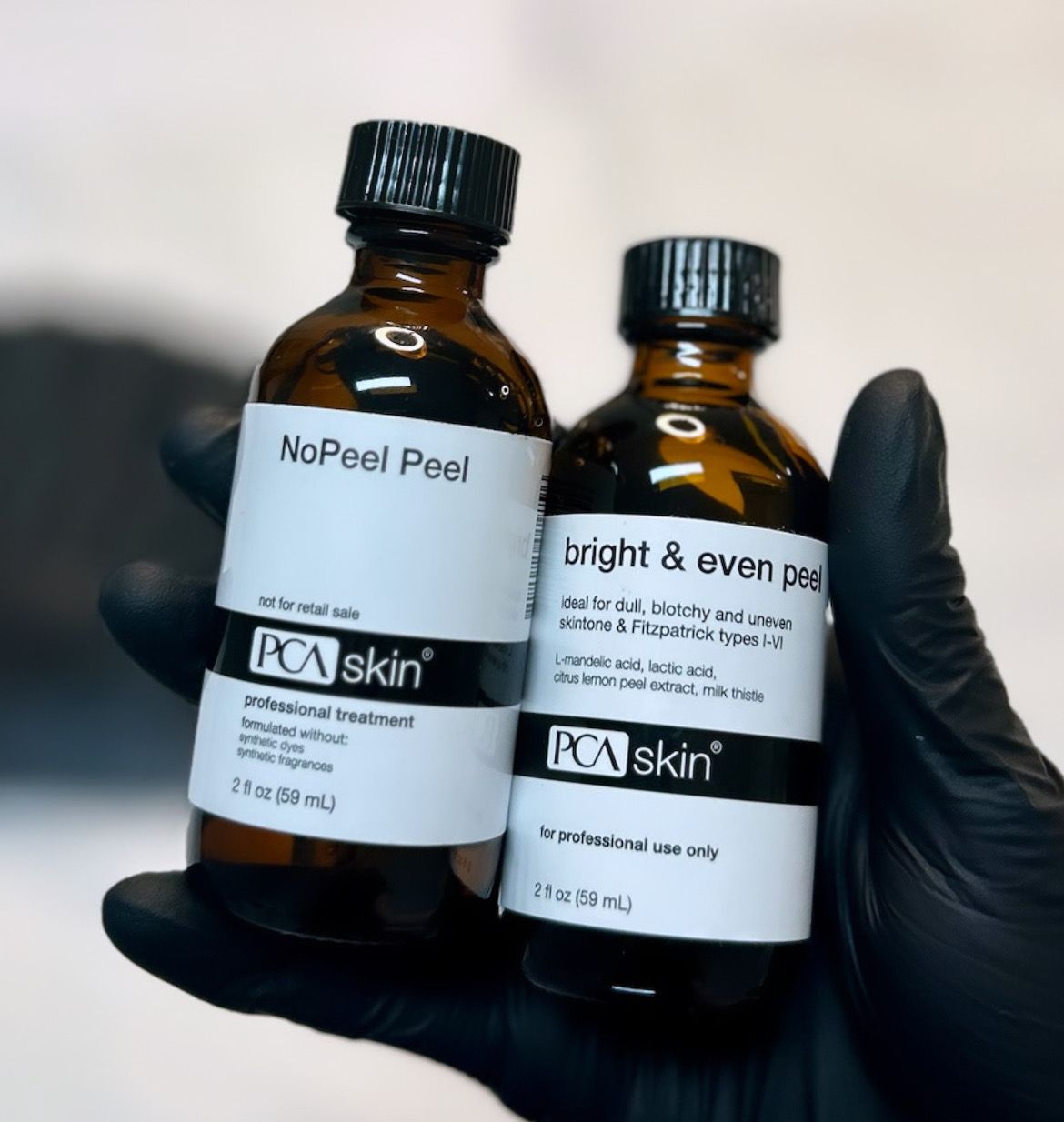
🍂 It’s Skin Peel Season: Time to Renew with PCA SKIN It’s officially skin peel season - the perfect time to refresh, repair, and reveal brighter skin especially if your skin is feeling dull, pigmented, or congested post-summer. Whether you're tackling pigmentation, texture, or just want a radiant glow, there’s a PCA peel tailored for you. PCA Skin peels deliver visible, transformative results, safely and effectively for all skin types. Why choose PCA Chemical Peels? ✅ Medical-grade, clinically proven formulas Backed by 30+ years of dermatological science and research 🏆 Award-winning Recognised globally for innovation, safety, and results 🌈 Safe for all skin tones and types Inclusive formulations suitable for sensitive or acne-prone skin 🧪 Customisable solutions A wide range of peels tailored to target pigmentation, acne, aging, and dullness. ⏳ Minimal to no downtime options Choose from no-peel, light, or moderate peels to suit your lifestyle ✨ Top Picks for the Season 1. Pigment Correct Peel Best for: Post-summer pigmentation, sunspots, melasma, post inflammatory hyperpigmentation Targets stubborn dark spots and uneven skin tone using brightening and exfoliating acids like Tranexamic Acid and Lactic Acid. 📆 Downtime: light / mild peeling (2–5 days) 2. No-Peel Peel Best for: Those wanting to boost radiance and improve texture without visible peeling. Perfect for the festive season! Gently resurfaces and hydrates with no flaking or shedding - perfect for first-timers or maintenance. 📆 Downtime: None 3. Bright & Even Peel Best for: Dull, tired and uneven skin Restores glow, improves texture, brightens and evens tone for a radiant, smoother complexion. 📆 Downtime: Light to mild peeling (2–5 days) Why is now the perfect time? UV levels are lower and offer the ideal conditions for chemical peels - reduced sun exposure means safer, more effective treatment with minimal risk of pigmentation. Now is the optimal time to target discolouration, texture, and sun damage.
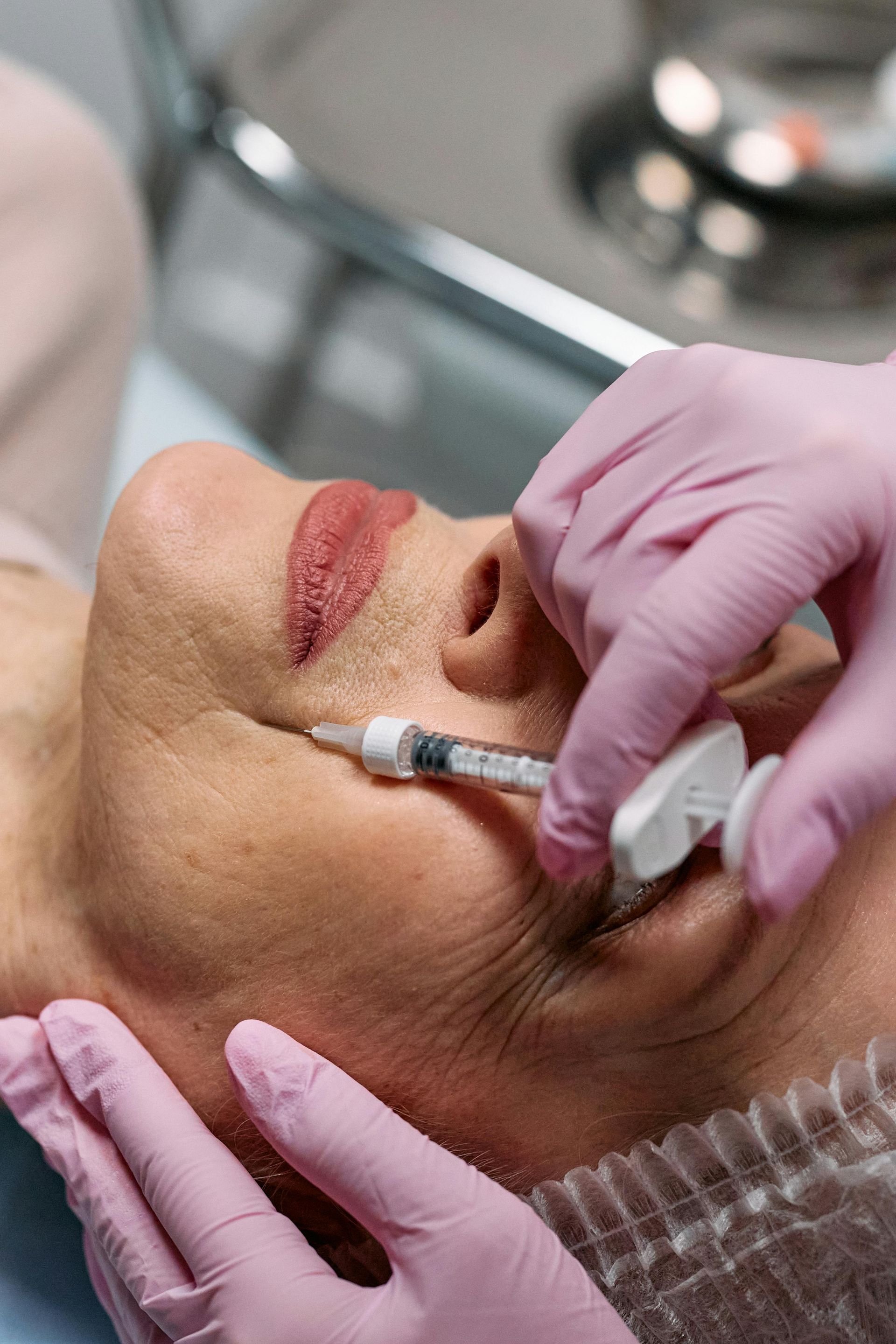
Dermal Fillers 101: What to Expect Before, During, and After Treatment Whether you’re looking to smooth fine lines, restore lost volume, or enhance facial contours, dermal fillers are a safe, non-surgical option with minimal downtime. Here at Be You, all our injectors are qualified medical professionals, and we use award-winning dermal fillers by Teoxane, renowned for their quality, safety, and natural looking, long- lasting results. If you’re considering fillers but aren’t sure what to expect, this guide walks you through every step, from your initial consultation to aftercare. ✅ What Are Dermal Fillers? Dermal fillers are injectable treatments that contain Hyaluronic Acid (HA), a molecule found naturally in the skin. They are designed to restore volume, smooth wrinkles, and enhance facial features. Common treatment areas include: Cheeks Lips Nasolabial folds (smile lines) Marionette lines Jawline and chin Tear troughs (under-eye) 🗓️ Before Your Appointment: The Consultation Every treatment begins with a thorough, one-on-one consultation. This is your opportunity to talk about your goals and ask questions. During your consultation, we will: Assess your facial structure and skin condition Review your medical history to ensure suitability Recommend the best treatment plan and discuss your budget Set realistic expectations and explain the process in full 💉 During the Treatment: What to Expect Dermal filler treatments are quick, comfortable, and tailored to you. Here’s how it works: Preparation & Numbing: The area is thoroughly cleaned, and a topical numbing cream is applied to ensure your comfort. Time to inject: Our medical practitioners will then perform the treatment using either a needle or a cannula, depending on the area being treated. Assessment : Our practitioner will carefully review the treated area to ensure the results look balanced and natural, gently massaging if needed for smooth, even distribution. Aftercare: You will be given aftercare advice, along with a follow-up email for your reference. For new patients the appointment typically lasts around 30 minutes. ⏳ After Treatment: What to Expect Some minor swelling or bruising is completely normal and will subside within a few days. Common Post-Treatment Effects: Mild redness, tenderness, or swelling Occasional bruising, especially in delicate areas like lips A feeling of slight firmness, which softens as the filler integrates Aftercare Tips: Avoid alcohol, strenuous exercise, and extreme heat (e.g. saunas or steam rooms) for 24-48 hours Don’t massage or press on treated areas unless advise Keep the area clean (no makeup) for 24 hours You can expect to see full results approximately two weeks post-treatment ⏰ How Long Do Teoxane Fillers Last? One of the benefits of Teoxane’s award-winning RHA® technology is long-lasting yet natural results Lips: 6–9 months Cheeks and jawline: 9-12 months Tear troughs: 9–12 months Maintenance treatments are recommended to maintain optimal results
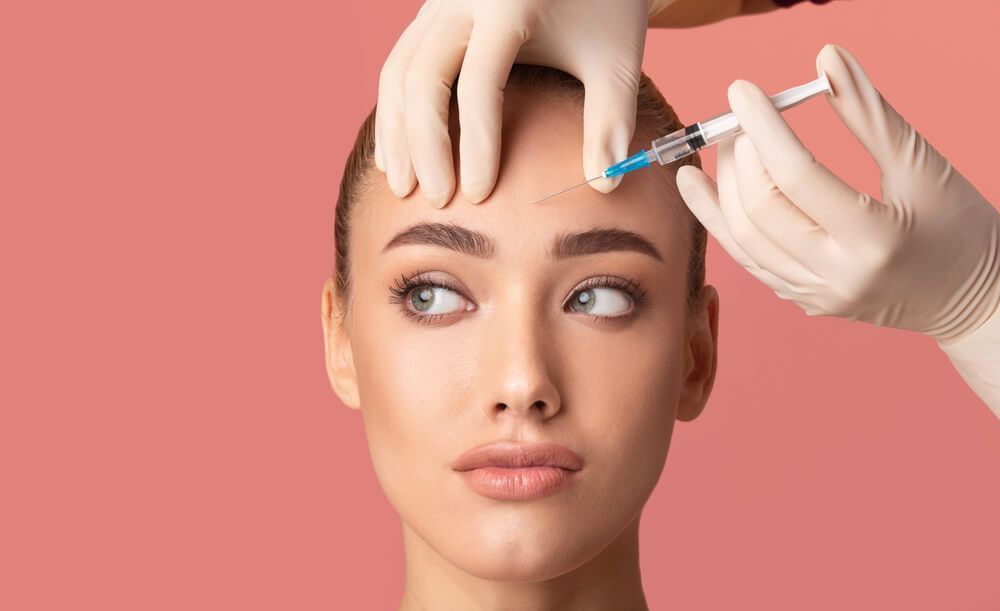
Why You Should Only Trust Medical Professionals with Your Botox: The Rising Threat of Fake and Illegal Imports. Botox is one of the most popular non-surgical cosmetic treatments in the world. However, there lies a growing danger, the alarming increase in illegal and counterfeit Botox being imported and used by unlicensed providers. For your safety, health, and results, it is critical to seek treatment only from qualified medical professionals. The Rise of Counterfeit Botox Global demand for Botox has created a lucrative market not only for legitimate suppliers but also for black market vendors who produce and distribute unregulated, fake versions of the drug. These counterfeit products are often manufactured without proper quality controls, may contain harmful substances, and can be dangerously misbranded or contaminated. According to health authorities like the FDA and WHO, seizures of illegal cosmetic injectables have risen sharply in the last few years. Many of these products are sold online, smuggled through unauthorised channels, or repackaged to appear legitimate. The Health Risks of Fake Botox Illegitimate Botox can pose serious and even life-threatening health risks. These may include: Severe allergic reactions Botulism (a potentially fatal condition) Facial paralysis or muscle weakness Vision problems Permanent disfigurement In some documented cases, patients have required hospitalisation after receiving counterfeit Botox injections. These outcomes are not just rare mishaps, they are the direct result of unregulated substances being administered by individuals lacking medical training. Why Medical Professionals Matter Botox is a prescription drug. That means it should only be administered by a licensed healthcare provider, such as a doctor, nurse practitioner, or registered nurse under supervision. Medical professionals are trained to: Use only FDA-approved, pharmaceutical-grade products sourced through legal supply chains Properly assess your medical history to ensure you're a safe candidate Inject Botox accurately to avoid nerve damage, asymmetry, or complications Handle adverse reactions if they occur Choosing a board-certified medical provider ensures your treatment is both safe and effective. These professionals follow strict protocols, maintain sterile environments, and are bound by ethical and legal standards that protect patients. Red Flags of Illegal or Unqualified Botox Providers If you're considering Botox, be cautious of the following warning signs: Prices that seem too good to be true Offers from spas, salons, or “Botox parties” without licensed supervision Providers who won’t show proof of their credentials or source of product Lack of a medical consultation prior to injection Protect Yourself: Ask the Right Questions Before receiving Botox, always ask: Is the provider a licensed medical professional? Where is the Botox sourced from, and is it FDA-approved? What happens if there’s an adverse reaction? Are you receiving a full consultation with a risk disclosure? Conclusion Botox, when administered by skilled professionals using authentic, approved products, is generally safe and effective. But cutting corners by visiting unqualified providers or accepting suspiciously cheap offers exposes you to serious risks - both to your appearance and your health. With counterfeit Botox on the rise, vigilance has never been more important. Always choose safety, expertise, and professionalism when it comes to cosmetic procedures.
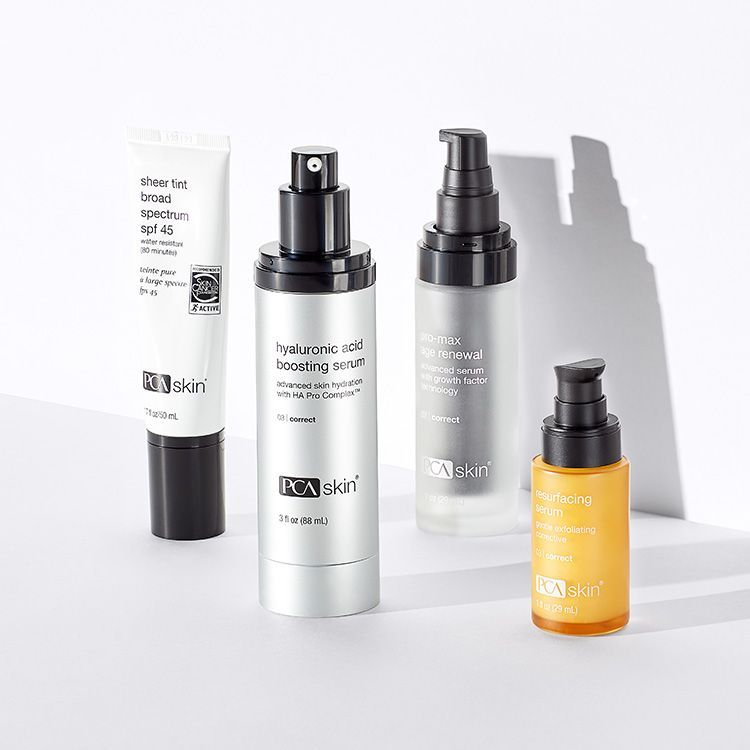
PCA SKIN has established itself as a trusted name in the skincare industry, renowned for its commitment to science-backed formulations and professional-grade products. With a focus on delivering visible results, the brand offers a comprehensive range of products designed to address various skin concerns. A Legacy of Innovation Founded over three decades ago, PCA SKIN has consistently prioritised product innovation, excellence in education, and unparalleled customer support. This dedication has led to the development of advanced skincare solutions that cater to a diverse clientele. Award-Winning Formulations In 2024, PCA SKIN UK received the prestigious "Best Topical Skin Product/Range of the Year" award at the Aesthetic Awards. This accolade highlights the brand's excellence in skincare, with products like the Pro-Max Age Renewal Serum standing out for their efficacy in reducing signs of ageing. Key Product Categories Hydration : Products like the Hydrating Serum and Collagen Hydrator are designed to replenish and retain moisture, promoting a plump and youthful appearance. Brightening : The Pigment Gel HQ Free and Intensive Brightening Treatment target hyperpigmentation and uneven skin tone, utilising ingredients like niacinamide and retinol. Anti-Aging : The Exlinea Peptide Smoothing Serum and Pro-Max Age Renewal Serum address fine lines and skin firmness, incorporating peptides and growth factors. Acne Control : The Acne Control Regimen, featuring the BPO 5% Cleanser and Clarity Treatment, offers solutions for blemish-prone skin. Commitment to Quality PCA SKIN products are formulated with evidence-based ingredients such as hyaluronic acid, vitamin C, and salicylic acid. The brand is also cruelty-free, ensuring that no animals are harmed in the development of its products. Conclusion Whether you're seeking to hydrate, brighten, or address specific skin concerns, PCA SKIN offers a range of products backed by scientific research and professional expertise. Its commitment to quality and innovation makes it a standout choice for those looking to enhance their skincare routine. Note: Always consult with a skincare professional to determine the best products for your individual skin needs

Skin Cancer Awareness: What You Need to Know to Stay Safe in the Sun May is Skin Cancer Awareness Month, a time to highlight one of the most common, yet preventable forms of cancer worldwide. While soaking up the sun can feel great, too much exposure to ultraviolet (UV) rays puts you at serious risk for skin damage and skin cancer. Skin cancer is highly preventable and treatable when caught early. With simple habits like daily sunscreen use and routine skin checks, you can drastically lower your risk. What Is Skin Cancer? Skin cancer occurs when abnormal skin cells grow uncontrollably, often triggered by UV radiation from the sun or tanning beds. There are three main types: Basal Cell Carcinoma (BCC) – The most common and least dangerous form, often appearing as a shiny bump or pink growth. Squamous Cell Carcinoma (SCC) – Can look like a red, scaly patch or sore that doesn’t heal. Melanoma – The most serious type, which can spread quickly and become life-threatening if not caught early The ABCDEs: Know the Warning Signs When it comes to melanoma, early detection saves lives. Here’s what to look for in moles or spots on your skin: Asymmetry : One half doesn't match the other. Border: Irregular or blurred edges. Colour: Varies in colour (brown, black, red, white, or blue). Diameter : Larger than 6mm (about the size of a pencil eraser). Evolving : Changes in shape, size, or behaviour (itching, bleeding, etc.). Do regular skin self-checks and see a dermatologist if you have concerns. We have Dr Becky available for appointments, who works as a community dermatologist. How to Protect Your Skin Daily Wear Sunscreen – Use a broad-spectrum SPF 30+ every day, even on cloudy days. Cover Up – Wear hats, sunglasses, and long sleeves where possible. Seek Shade – Especially between 10am-4pm AVOID Tanning Beds – UV radiation from indoor tanning is just as harmful. Get Checked – Schedule annual skin exams with a professional. HERE AT BE YOU WE OFFER MANY TREATMENTS AND PRODUCTS TO TREAT SUNDAMGED SKIN Clinical treatments to reduce sun damage: Skin Needling, PCA Skin peels, Cryotherapy. Professional Products (all PCA Skin): Weightless Protection Broad Spectrum SPF 45, Pigment Bar, Resurfacing Serum, C&E Advanced.
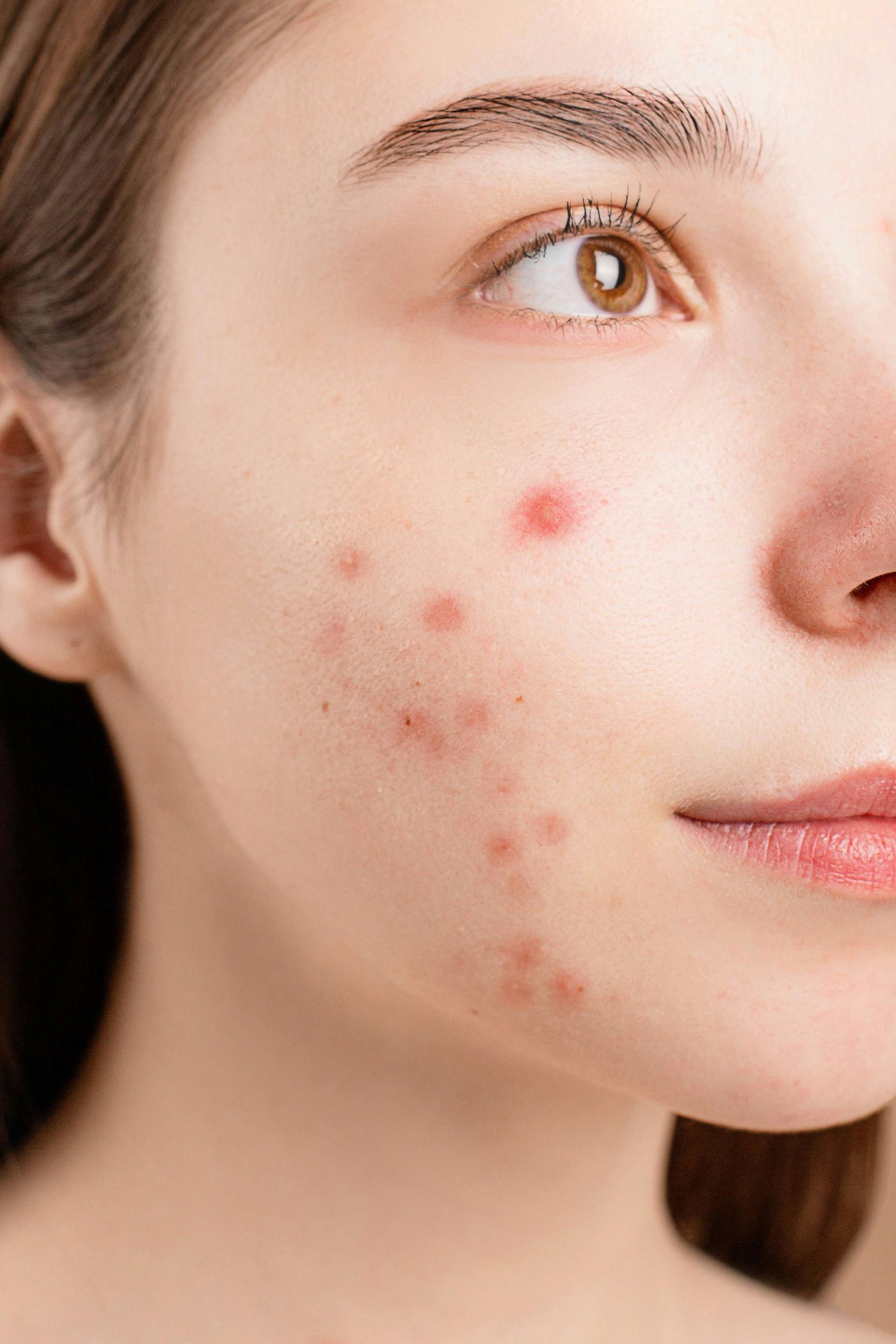
Acne is one of the most common skin concerns , affecting people of all ages. While it is often associated with adolescence, many adults also struggle with persistent breakouts. As a GP and dermatologist , I understand how frustrating and sometimes painful acne can be. Fortunately, with the right skincare routine and treatments, it is possible to manage and reduce breakouts effectively . Understanding Acne Acne occurs when follicles become clogged with oil and dead skin cells, leading to inflammation and bacterial growth. The main types of acne include: · Whiteheads & Blackheads (Comedonal Acne): Caused by clogged pores. · Papules & Pustules: Inflamed red bumps or pus-filled lesions. · Nodules & Cysts: Severe forms of acne that can cause scarring. Effective Acne Management Tips 1. Establish a Consistent Skincare Routine A simple yet effective skincare routine is essential for preventing and treating acne. · Cleanse: Use a gentle, non-comedogenic cleanser twice daily. · Exfoliate: Chemical exfoliants like salicylic acid can help unclog pores. · Moisturise: Hydration is key, even for oily skin—opt for a lightweight, oil-free moisturiser. · Sun Protection: Always use a broad-spectrum SPF %0+ sunscreen to prevent hyperpigmentation and irritation from acne treatments. 2. Use Acne-Fighting Ingredients Look for products containing: · Benzoyl Peroxide: Kills acne-causing bacteria. · Salicylic Acid: Unclogs pores and reduces inflammation. · Retinoids: Promote cell turnover and prevent clogged pores. · Niacinamide: Reduces redness and regulates oil production. 3. Avoid Common Acne Triggers · Touching Your Face: Hands carry bacteria that can worsen breakouts. · Dirty Pillowcases & Phones: Change pillowcases frequently and clean your phone regularly. · Diet: Good skin health start from within, a healthy balanced diet and plenty of water means your skin is getting everything it needs to repair itself and stay hydrated. 4. Consider Professional Treatments If over-the-counter products aren’t effective, consult a doctor for personalised treatment options such as: · Prescription Topicals: Stronger retinoids or antibiotics. · Oral Medications: Antibiotics can be prescribed in clinic where suitable · Aesthetic Treatments: At Be You we offer a variety of treatments that can be beneficial for acne including facials, chemical peels and microneedling which can be great for scarring. When to See a Doctor If your acne is persistent, painful, or causing scarring, it’s time to seek professional help. Book a skin consultation and we can discuss your skin care regime, what treatments we can offer to work on your skin and if necessary provide prescriptions to help manage your acne*. Final Thoughts Acne management requires patience and consistency, but with the right approach, clear skin is achievable. Focus on gentle skincare, effective ingredients, and professional guidance when needed. If you’re struggling with acne, don’t hesitate to reach for expert advice. Have questions about your acne? Leave a comment below or book a consultation with a skincare professional! *Isotretinoin (Roaccutane) not prescriptible in clinic but advice can be provided on if this is suitable and what the treatment involves

